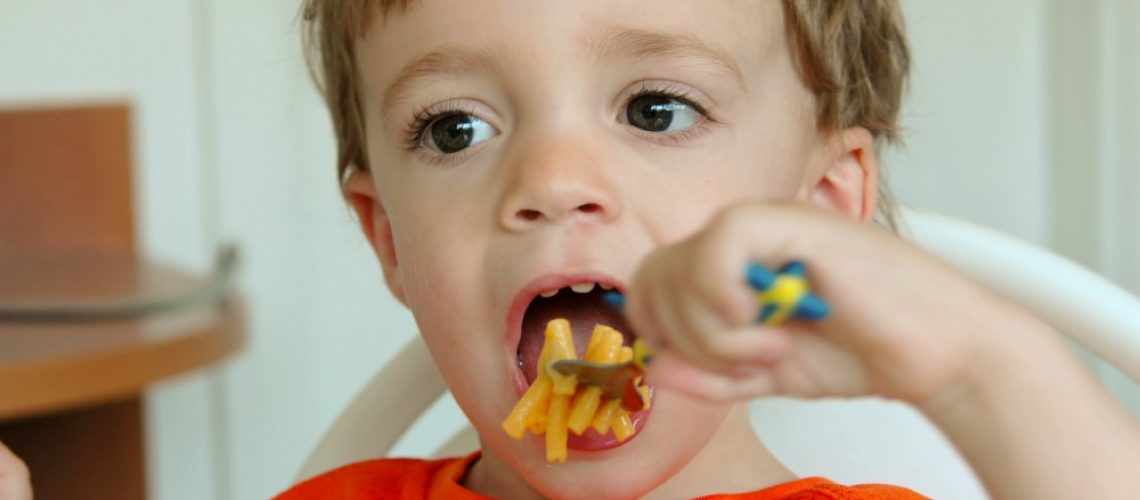Amidst the COVID-19 pandemic, sales of highly processed food have skyrocketed as families understandably seek shelf-stable products and comfort food during these challenging times. And while we may joke about the “COVID-19” pounds of weight gain from our shelter-in-place diets, there are also less obvious chemical hazards hidden in our processed food.
As a mom of a child with autism, and a long-time advocate for children with neurological disabilities in my role as the Healthy Children Project Coordinator for the Learning Disabilities Association of America, protecting children’s vulnerable and developing brains from toxic chemical exposure is a personal mission of mine.
One group of toxic industrial chemicals I worry about are phthalates. Used to soften plastics and added to inks and adhesives, they are so ubiquitous in the U.S. food supply that food is most Americans’ top source of phthalates exposure. Generally, the more highly processed the food, the more phthalates it may contain.
Experts agree that endocrine-disrupting phthalates interfere with healthy brain development of young children. No child or pregnant woman should be exposed to chemicals that harm their health through the food they eat.
Major food brands behind the popular products that so many children and families rely on—like Kraft macaroni and cheese, which has tested positive for phthalates—can and must take action. On May 7, Kraft Heinz is holding its annual shareholders meeting, and we must all speak up to demand the company demonstrate market leadership and protect children’s health by publicly acting to keep phthalates out of its food.
Dozens of public health experts at leading universities, learning and developmental disability organizations, and nurses and doctors around the country are already speaking out. They joined a sign-on letter earlier this year calling for major food manufacturer Kraft Heinz to lead the marketplace by taking public action to keep these toxic chemicals out of its food.
The letter notes: “According to the U.S. Centers for Disease Control and Prevention, nearly 1 in 6 American children have a learning or developmental disability. The National Academy of Sciences estimates that environmental factors, including toxic chemicals, cause or contribute to at least a quarter of learning and developmental disabilities in American children.”
In fact, an important study published in February found links between prenatal exposure to phthalates and autistic traits in young boys. This is one of several recent studies to associate prenatal phthalates exposure with autism. These studies build on decades of substantial scientific evidence that these chemicals harm children’s health, with links to neurodevelopmental as well as reproductive harm, among other health issues.
The body of evidence on the harm caused by phthalates and other toxic chemicals in our food supply is clear, and alarming. In March, dozens of scientists from around the globe published a consensus statement in the leading peer-reviewed journal Environmental Health warning that lax regulation of chemicals, including phthalates, in food contact materials pose an alarming and growing threat to human health.
Further, the American Academy of Pediatrics released a policy statement in 2018 calling for U.S. government action to keep phthalates and other harmful chemicals out of materials that contact our food, to protect babies and children from their harmful health effects.
In many parts of the world, such as Europe, Japan, and even the state of Maine, policy makers have heeded the warnings of scientists and worked to protect vulnerable populations by banning phthalates from materials that contact food.
Yet, the U.S. Food and Drug Administration still allows phthalates in materials that contact food throughout the supply chain—such as in conveyer belts in factories, in plastic food service gloves in restaurants, and flexible plastic tubing used to milk cows on dairy farms—where these dangerous chemicals are known to migrate into the food we eat.
It doesn’t have to be this way. In the absence of FDA action, major food manufacturers like Kraft Heinz have the opportunity to demonstrate leadership for health by taking public action to keep phthalates out of food.
Some food corporations are already acting. Néstle, a competitor of Kraft Heinz, has already committed to finding and removing all sources of phthalates in its packaging.
But so far, Kraft has quite literally shut the door in the faces of concerned moms and children’s advocates such as myself.
Kraft Heinz had its shareholder meeting on May 7th. Sadly, the Kraft board and CEO did not say anything about actions the company is taking to reduce toxic chemicals like phthalates in their food. The CEO Miguel Patricio said that being one of the leading food and beverage companies in the world comes with huge responsibility. I agree. While I thank Kraft Heinz for helping to feed people during the pandemic, we need to ensure this food is safe and free of chemicals that can harm brain health.
By Tracy Gregoire, Healthy Children Project Director, Learning Disabilities Association of America –


